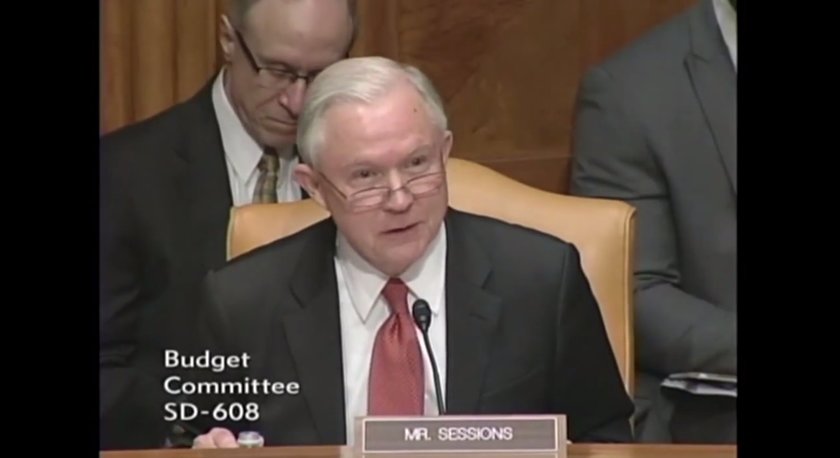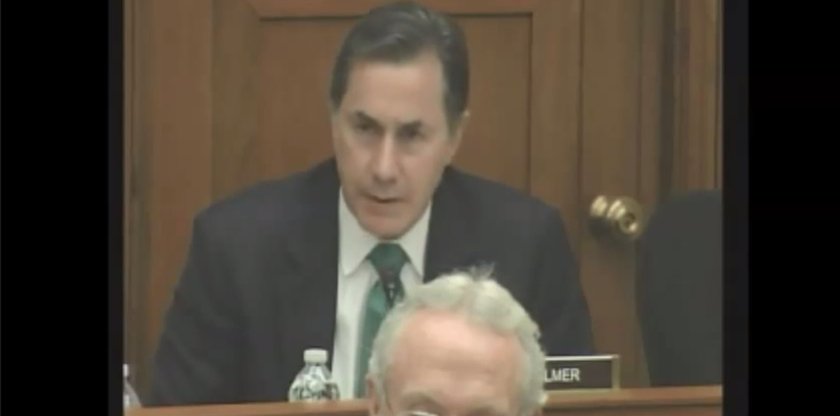
(The following remarks were originally delivered Wednesday by Sen. Jeff Sessions during a Senate Budget Committee meeting to begin work on an FY 2016 budget resolution.)
Under the control of Senate Democrats, (the Budget Committee) went through a five-year period in which they brought only one budget to the floor.
The United States’ gross federal debt stands at $18.2 trillion. When President Obama took office, it was $10.6 trillion. That is a shocking increase, one that threatens of the future of every single American. Our interest payments on the debt alone are already 6 times our federal highway budget.
CBO projects that, a mere 10 years from now, inexorably growing interest payments will more than triple to $800 billion, out of a projected $5.8 trillion budget.
This is a national calamity. One out every 7 dollars, taken from the American people and the economy, will be extracted for nothing. Interest is a burglar raiding the income of the next generation to pay for today’s reckless living. It drains the wealth of nations. It is a stealth tax on every working person.
No nation can financially sustain such spending, as the Congressional Budget Office has repeatedly warned us.
We were told this dangerous taxing and borrowing would spur economic growth. But growth over the previous 4 years has averaged only 2.2%, about half of what the White House projected. CBO, OMB, and the Federal Reserve—all have dramatically overestimated growth.
Never has so great a sum been spent for so little.
Consider: Since 2009—the year economists say the recession ended—the following has occurred:
· More than 12 million people left the workforce
· Real median family incomes have dropped $3,000
· Real median weekly earnings are lower today than they were in 1979
· The New York Times says that the trend of income inequality has “accelerated during the Obama administration”
· The number of people on food stamps has increased 7 million
· Almost 1 in 4 people in their prime working years are not working
Our constituents are pleading with us to chart a new path. They do not want more tax, spend, borrow and regulate. They want a budget that will help millions enter the workforce and see their incomes and wages rise.
This (new Republican) budget lays the initial groundwork for much-needed welfare reforms. The federal government currently spends around $750 billion each year on means-tested welfare and poverty support programs. Including state contributions to these programs, that’s $1 trillion dollars on federal welfare. This money is spread out across 80 programs, administered by a vast bureaucracy with little oversight and no guiding moral vision. Only a miniscule 1% of this spending dedicated to job training. Meanwhile, job training is fragmented into 47 different programs throughout the federal budget.
Who among us can say that there isn’t a more effective, more compassionate way to spend this $1 trillion each year? We could spend $30,000 a year on every household living in poverty and still spend half of what our current welfare bureaucracy consumes each year.
Imagine if we reprogrammed more of those funds for job placement and apprenticeship programs. This would help transition millions from dependence to independence—without denying benefits to a single person in need. Our goal is simple: whenever possible, help someone to find a good-paying job that can support a family.
Government measures its success by how many people it enrolls in welfare; we need to measure our success by how many people we help lift off welfare and out of poverty. For each person we help to find a job, or get a pay raise, we are reducing spending while increasing real benefits.
We need some original thinking. For instance: When corporations say they want to find workers, why not send them to the welfare office instead of the immigration office?
I will be offering an amendment in the coming days to help transform the welfare office into a place to restart lives.
Jeff Sessions represents Alabama in the United States Senate.












